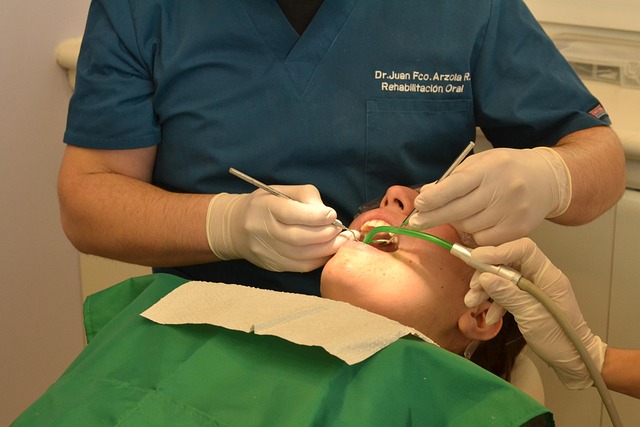Artery-Friendly Foods: Boost Your Cardiovascular Wellness
Discover the power of nutrition in promoting arterial health and reducing heart disease risk. This comprehensive guide explores scientifically-backed foods that can enhance cardiovascular wellness, offering practical insights on incorporating these nutritious options into your daily meals. Learn how simple dietary changes can lead to significant improvements in your heart health and overall well-being.

Nourishing Your Arteries: A Guide to Cardiovascular-Friendly Foods
Maintaining optimal arterial health is a cornerstone of overall wellness and longevity. By incorporating specific foods into one’s diet, individuals can significantly reduce their risk of heart disease and improve arterial condition. This article delves into the relationship between nutrition and cardiovascular health, highlighting key dietary choices that support strong, healthy arteries.
Foods That Foster Arterial Well-being
Research has identified several foods that play a crucial role in maintaining arterial health and promoting cardiovascular wellness:
Omega-3 Rich Fish
Fatty fish such as salmon, mackerel, and sardines are excellent sources of omega-3 fatty acids. These essential fats have been shown to:
- Reduce inflammation throughout the body
- Lower the risk of heart disease
- Help maintain clear arteries
Nutritionists recommend consuming fish at least twice weekly to harness these benefits.
Antioxidant-Packed Fruits and Vegetables
A diet rich in fruits and vegetables is vital for arterial health:
- Berries: High in antioxidants that protect arteries from free radical damage
- Leafy greens (e.g., spinach, kale): Contain nitrates that improve blood flow and reduce blood pressure
- Citrus fruits: Provide flavonoids associated with improved heart health and reduced stroke risk
Fiber-Rich Whole Grains
Whole grains are essential components of a heart-healthy diet:
- Rich in fiber, which helps lower cholesterol levels
- Oats contain beta-glucan, a soluble fiber particularly effective at reducing LDL (bad) cholesterol
- Examples include oats, quinoa, and brown rice
Incorporating a variety of whole grains can significantly benefit arterial health.
Heart-Healthy Nuts and Seeds
Certain nuts and seeds are powerhouses of cardiovascular-friendly nutrients:
- Walnuts, almonds, and flaxseeds are particularly beneficial
- Rich in omega-3 fatty acids, fiber, and plant sterols
- Help lower cholesterol levels and reduce inflammation
- Walnuts have been shown to improve endothelial function, crucial for healthy blood flow
A small daily serving of nuts or seeds can provide substantial heart health benefits.
Olive Oil: A Mediterranean Staple
Extra virgin olive oil, a key component of the Mediterranean diet, offers numerous cardiovascular benefits:
- Rich in monounsaturated fats and polyphenols
- Possesses anti-inflammatory and antioxidant properties
- Associated with lower blood pressure and improved cholesterol levels
- Can reduce the risk of heart disease when used to replace less healthy fats
Incorporating Heart-Healthy Foods into Your Diet
To help readers integrate these beneficial foods into their daily meals, here are some practical meal ideas:
| Meal Suggestion | Key Ingredients | Cardiovascular Benefits |
|---|---|---|
| Grilled Salmon with Quinoa Salad | Salmon, quinoa, mixed vegetables, olive oil | Omega-3 fatty acids, fiber, antioxidants |
| Berry and Walnut Oatmeal | Oats, mixed berries, walnuts, flaxseeds | Soluble fiber, antioxidants, omega-3s |
| Spinach and Almond Salad | Spinach, almonds, olive oil, citrus dressing | Nitrates, healthy fats, flavonoids |
| Whole Grain Toast with Avocado and Sardines | Whole grain bread, avocado, sardines | Fiber, healthy fats, omega-3 fatty acids |
These meal ideas combine multiple heart-healthy ingredients to maximize cardiovascular benefits.
Conclusion
A diet rich in fish, fruits, vegetables, whole grains, nuts, seeds, and healthy oils can significantly contribute to arterial health and reduce heart disease risk. By making informed food choices and prioritizing these heart-healthy options, individuals can take proactive steps towards maintaining a robust cardiovascular system.
It’s important to note that while diet plays a crucial role in heart health, it should be part of a comprehensive approach that includes regular exercise, stress management, and consultation with healthcare professionals. Readers are encouraged to seek personalized nutrition advice from registered dietitians or qualified healthcare providers.
This article is intended for informational purposes only and should not be considered medical advice. Always consult with a qualified healthcare professional for personalized guidance and treatment.




